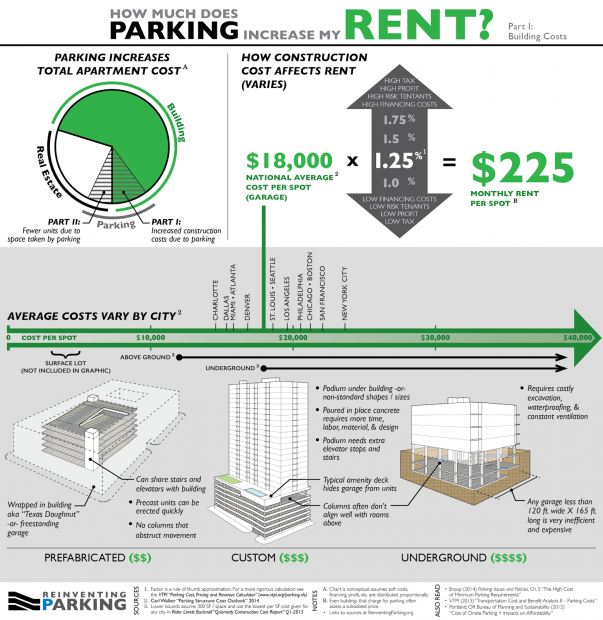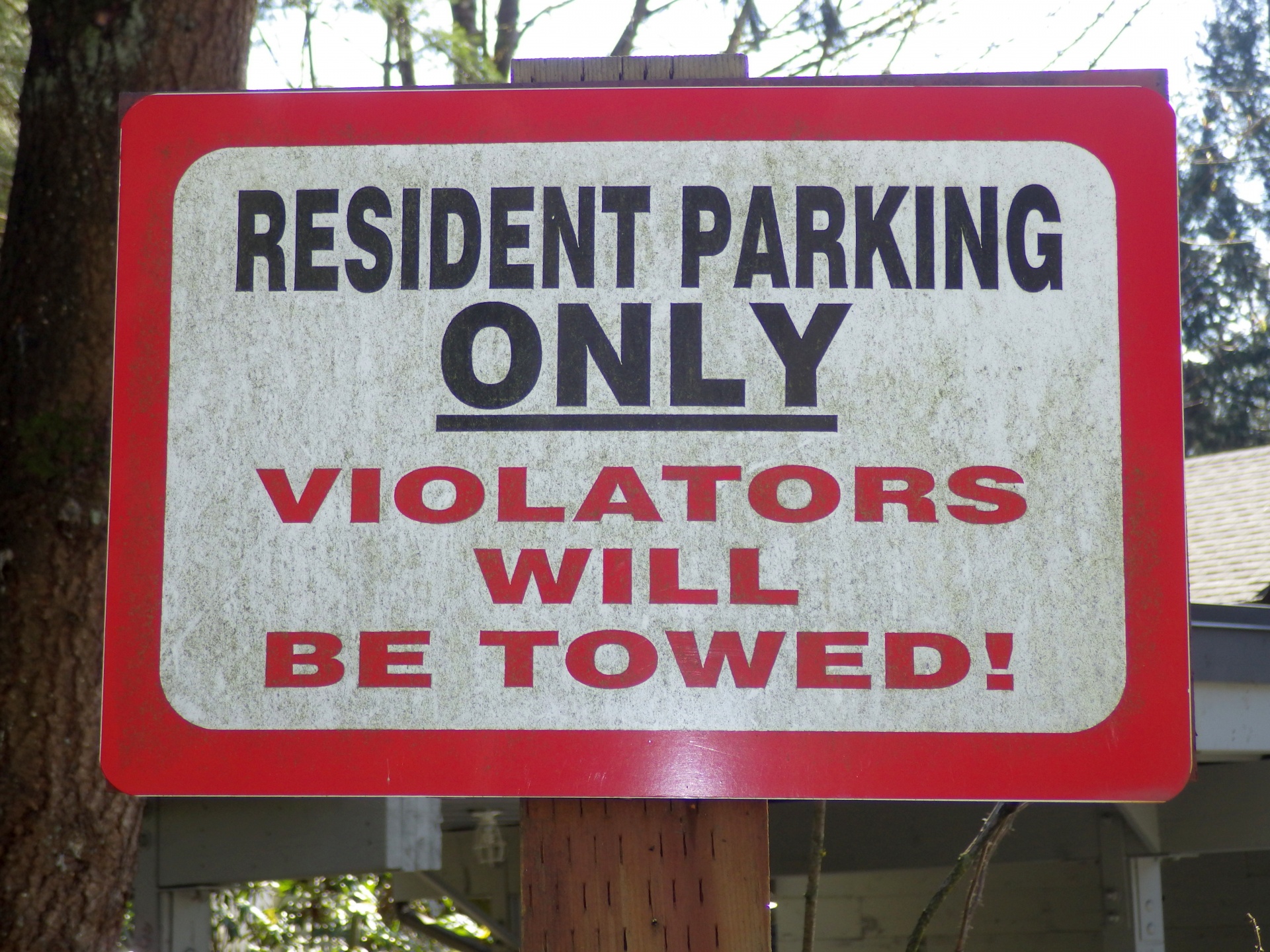Coord invites cities and other curb managers to apply for its Digital Curb Challenge to undertake a free curb management pilot program in 2020. Applications close on Feb. 14. Click here for information.
Americans who have a private place to park their car at home almost never pick public transportation over driving.
Only 0.7 percent of drivers who get a free parking spot when they sign a lease or buy a home end up using transit, a new study from Land Use Policy shows. That's pretty bleak, especially considering that a whopping 90 percent of U.S. households have their own designated spot — and even 87 percent of renters have a private place to store their SUV or sedan.
Bundled parking is usually presented as a complimentary perk by the property manager or real estate agent — though of course, the price of building and maintaining that spot is factored into the check you write every month to the landlord or the mortgage company. And in the case of surface parking lots, those "free" spots in the apartment complex parking lot also gobble up valuable land that could be used to build more apartments, upping the supply of affordable rentals in the area and lowering the price on all units region-wide. That's an enormous lost opportunity that's exacerbating affordable housing crises in our most rental-strapped cities nationwide.
But taking away everyone's "free" residential parking to make driving less convenient is no silver bullet because the same study shows that only 1.6 percent of people who don't have their very own spot are only occasional public transportation users.

The reason why even residents without bundled parking are still likely to be drivers is simple: a resident-only spot is far from the only place a driver can find a free or super-cheap parking space close to home. People who have to hunt for a space end up paying an average of just $20 a month at parking meters — because so much parking on public streets is given away for free. And when these drivers leave home, parking only gets easier: a staggering 99 percent of all car trips made in the US still end with a driver pulling into a spot for which they don't pay, parking expert Donald Shoup estimates.
But, of course, even this free parking isn't actually free; we're all paying for it via our state and local road funds, which are increasingly going insolvent being propped up by terrifying levels of unpayable public debt.
So if denying a resident a private spot isn't the huge deterrent to car ownership our cities need, what would get people to go car-free? Only a massive change in a political-industrial culture that incentivizes driving in every aspect of the built environment.
The handful of American cities that have already gotten serious about reducing cars on the road didn't just make it hard to park at the end of the day: they made biking, walking, and transit into safe, convenient and attractive transportation options where private car ownership just doesn't make sense.
"Bundled parking might make it easier to own a car, but it won’t necessarily make it easier to drive one — especially if the building is part of a transit-oriented development where public transit is more convenient," said Deborah Hanamura of the green building consulting firm Paladino and Company, which works largely in transit-rich communities. As such, Hanamura says it's easy to argue to developers in those cities that bundled parking isn't the essential resident amenity you might assume.
"Given the investment that goes into building a parking structure, does it make sense to build a parking structure for a millennial tenant to store a car that they don’t drive, when that investment could go toward more rentable units?"
Orienting our housing towards transit isn't the only piece of the puzzle, either — it's also crucial to situate homes within fully connected neighborhoods, and bring the businesses and public spaces that residents rely on day-to-day within walking distance. Residents of the 10 percent of Americans households that don't have guaranteed parking at home are twice as likely to be able to reach a grocery store by walking or biking than their counterparts with their very own carports, the Land Use Journal study says.
But until more cities get serious about comprehensively remaking themselves around sustainable transportation, bundled parking and its autocentric brethren may be here to stay. That's not just bad news for the environment, which is forced to absorb an additional 119,480 grams of vehicle-related carbon dioxide per month from each household that enjoys a dedicated spot. It's also bad news for most of our wallets. "Households with bundled parking spend more than twice as much per month on gasoline as households without ($237 to $105)," study authors Michael Manville and Miriam Pinski note.
Those are huge public and private costs just for the privilege of keeping your wheels within easy reach — and when you take into everything that autocentricity costs us, they're certainly not worth it.






